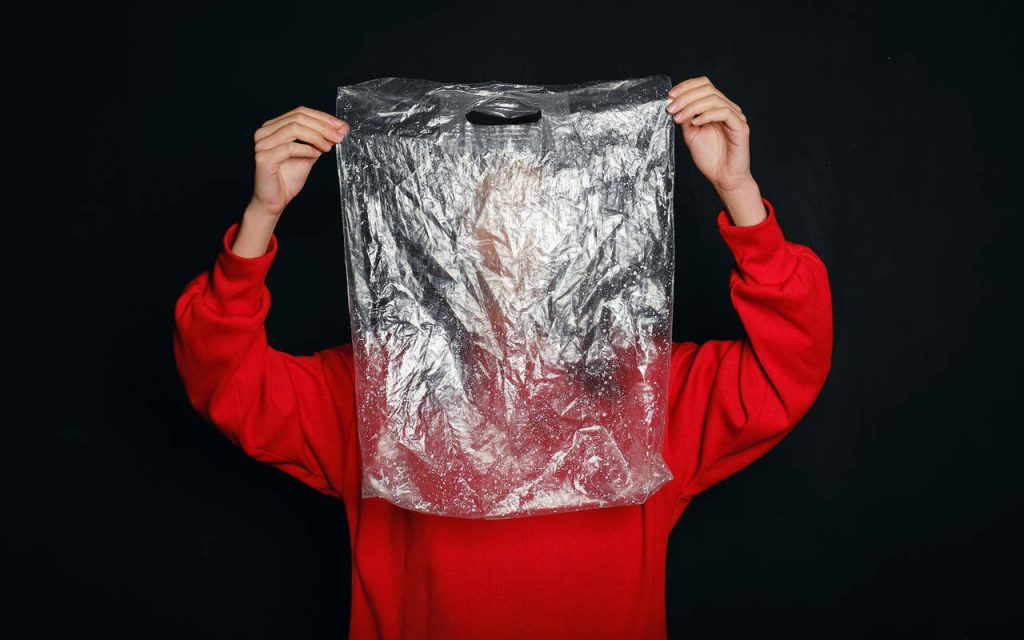At NPF Packaging, we supply a huge range of polythene bags, in different thicknesses, widths and polymer blends. Knowing what to choose for your packaging requirements – or if you’d be better off with polythene packaging film – can be tricky.
In this post, we’re going to run through some common poly bag types and how they can be used for packaging.
But first – what are polythene bags? Aren’t they just the things you get at the supermarket for 10p? Well, yes – the common, garden variety retail plastic bag is made of polythene. It’s light, cheap, and strong enough to hold heavy items.
But when we talk about polythene bags we’re not referring to shopping carrier bags; we’re talking about packaging-specific bags, made for commercial and industrial use.

What are polythene bags?
Polythene bags are a popular and cost-effective form of commercial and industrial packaging.
Polythene bags are extremely lightweight, but have excellent tensile strength, meaning they can carry loads orders of magnitude greater than their own mass. Poly bags don’t tear easily – they tend to stretch and deform rather than fail immediately. This is highly advantageous in most types of packaging.
They provide protection from dirt, dust and moisture – as well as shielding from scratches. Many blends can be used to package foodstuffs and medical equipment, and can be quickly and easily sealed with a heat sealer (or just a simple tuck and tape job).
Polythene bags can be used as an all-in-one packaging solution, with branding and instructions printed directly onto the bag – or as part of a packaging system that incorporates cardboard boxes, polystyrene foam and void filling materials.
They are super versatile – and come in many different forms.
Polythene bag types
Polythene bags can be made in a wide range of duties – from ultra light (8mu polythene bags) to super heavy duty (300mu polythene bags).
Micron thicknesses of 20 to 50 are good for lightweight items – clothes, toys and foodstuffs. Heavier thicknesses are useful for nails and bolts, or heavy materials that would otherwise tear a lighter bag. Thicker poly bags can also add an extra layer of cushioning to packaged items, without a significant weight increase.
Beyond duty, there are different polymer blends for UV protection, freezer integrity – and virgin materials for food safe plastic packaging or medical equipment.
The bags themselves can come in different shapes, too.
Gusseted polythene bags
A gusseted polythene bag has additional folds that let it open out into a wide, rectangular-section. It allows for greater volume in a smaller space than a simple, tube type bag, and also gives the filled bag a more consistent shape.
These are useful for packing small items, like loose foodstuffs, in a smaller and more uniform volume, to take up less shipping and storage space. Non-gusseted bags are better suited to narrow or cylindrical shapes, or flat items.
Grip seal bags
These are like Ziplock or sealy bags – with a reclosable opening fixed to the polythene. These are useful for packaging dry foods, loose components, or screws and bolts; items that are likely to be used at different times, and not at once.
Polythene bags on a roll
Usually, polythene bags are sold pre-cut, and packed for use in machinery or manual operations. Polythene bags on a roll are a continuous stream of bags, separated by perforations and wound into a roll – making them incredibly easy to dispense. Thanks to cored and coreless options, they can be used in manual packaging operations or with automated packaging machines.
They are available as gusseted bags, and in widths ranging from 19mm up to gargantuan sizes – big enough to fully bag pieces of furniture (or anything else for that matter!).
Should you use polythene bags or polythene film sheeting?
This depends on your product, your packaging goals and the level of packaging automation you have invested in. For example, if you have boxed electronics, and need to wrap them with a consumer-facing, anti-tamper polythene seal, an automated packaging solution running on rolls of polythene film may be the best solution.
Read more – what is the best polythene sheeting?
If however, you have a simpler, smaller packaging setup with more manual operations, the speed and convenience of polythene bags could boost your efficiency and the quality of your overall packaging.
Perfect packaging – for every type of product
We’re packaging specialists, with a full range of packaging solutions for commercial and industrial applications. Order customised polythene bags from NPF packaging, made to your exact specifications.
Call our friendly team on 01773 820415 for advice and help – or get a quote now.


